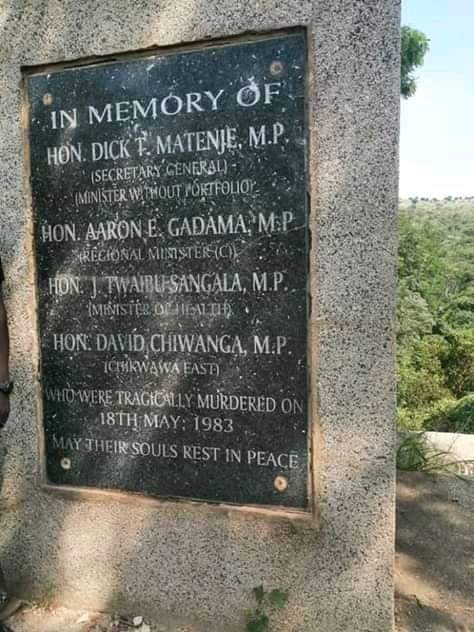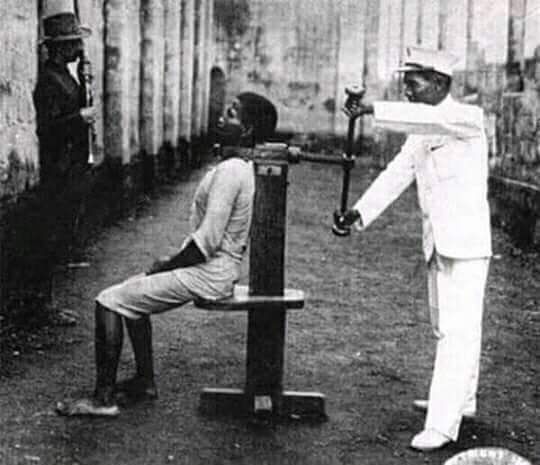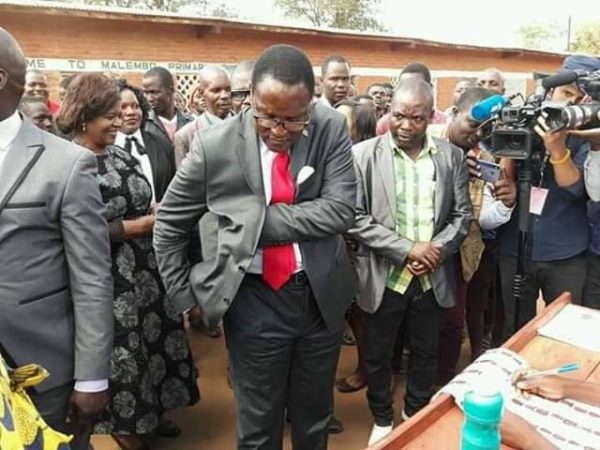
As Malawians vote on July 2, it will be the 37th anniversary of Central Region Minister Aaron Gadama’s death. He died gruesomely along with two other cabinet ministers and a Member of Parliament.
By all accounts the death of the Mwanza Four, as the victims have come to be known, was authored by the Malawi Congress Party (MCP).
During parliamentary debate in Zomba on May 17, 1983, Ministers Gadama, Dick Matenje and Twaibu Sangala proposed an electoral law amendment.
They recommended that the then Life President Dr. Kamuzu Banda presents three candidates per constituency, contrary to the then prevailing practice in which Dr. Banda imposed only one candidate.
The parliamentary sitting was taking place a month before one-party parliamentary polls. David Chiwanga, MP, supported the Ministers’ motion.
Reports also suggest that the four were, in addition, opposed to a proposal to amend the existing constitution to create the position of a Prime Minister who would be nominated by the Life President and would act in the Life President’s place in his absence.
Skulls Like Shattered Eggshells….
Accounts of what transpired immediately after that stormy parliamentary session differ in many ways but one thing was established by the Mwanza Commission of Inquiry into these deaths in 1994/95.
That fact was also not in dispute in the subsequent murder trial of Kamuzu Banda’s, two of his closest associates – John Tembo and Cecilia Tamanda Kadzamira – and some police officers who carried out the actual killings as well as others who tried to tamper with the evidence implicating the MCP regime.

The four victims were bludgeoned to death, pure and simple. The killings were so savage that one South African pathologist described the victims’ skulls as resembling ‘shattered eggshells’.
The victims were stuffed into Dick Matenje’s Peugeot 604, driven towards Mwanza from Blantyre, and dumped at Thambani with the car flipped upside down to make it all look like a car accident. The bodies also bore bullet wounds, shot perhaps to finish them off.
The victims were later unceremoniously off-loaded in sealed caskets at their ancestral villages and their families were ordered to bury them immediately, without traditional funeral ceremonies. That was the way the MCP government operated.
The regime followed this up with confusing statements on public radio about what had happened, including a claim that the four were en route to Mozambique, fleeing from some political confusion they had, themselves, created.
These killings came shortly after the assassination by MCP government agents of opposition figure in exile, Attati Mpakati, in Harare; and not too long before the treason trial of another opposition leader, Orton Ching’oli Chirwa, abducted from Zambia by agents of the MCP regime.
The Mwanza Four’s parliamentary performance on May 17, 1983, marked the last and rare occasion on which the desire for policy alternatives, apart from those of the Life President and his inner circle, was voiced officially. Gadama, Matenje, Chiwanga and Sangala paid the ultimate price for doing so.
No MCP Apology…..
Our country outlawed the single-party system in 1993 and, by the end of 1994, had a democratically-elected, multi-party government. Kamuzu Banda and his brutal party were put out to pasture by voters in May 1994.

Malawians showed their usual tolerance. The MCP, which had killed, detained-without-trial, tortured and/or exiled hundreds of Malawians while in one-party government, was nevertheless allowed to survive and even to compete in subsequent elections.
It was lucky. Mass-murdering parties in many other countries tend to be banned when they lose power. Tolerant Malawians gave the ousted MCP another lease on political life instead. We Malawians!
But 25 years after being ushered out of power, the MCP has not yet apologized for its history of egregious atrocities, unprecedented and unmatched in peace-time in Southern Africa, except for apartheid in South Africa. Only Kamuzu Banda apologized but that was on his own personal behalf.
His statement of apology was issued on January 4, 1996. It read:
“Systems of government are dynamic and they are bound to change in accordance with the wishes of and aspirations of the people. During my term of office, I selflessly dedicated myself to the good cause of Mother Malawi in the fight against Poverty, Ignorance and Disease, among many other issues;.But, if within the process, those who worked in my government or through false pretence in my name or indeed unknowingly by me, pain and suffering were caused to anybody in this country in the name of nationhood, I offer my sincere apologies.
I also appeal for a spirit of reconciliation and forgiveness amongst us all…Our beautiful country has been nicknamed ‘The Warm Heart of Africa’ and we have been admired for our warmth and spirit of hard work.
This admiration calls not only for a need for us to look at our past and present and draw lessons from it, but there is even a greater need for us to look forward to the future in our endeavours to reconstruct and reconcile if we have to move forward at all.”
Chakwera’s cross to bear
Clearly, Banda did not apologize on behalf of the MCP but for himself. You just have to read the text of the apology – reproduced above – to see this.
It would be the right thing to do for the MCP, therefore, to advertise its own institutional apology. All the talk about a ‘new’ MCP rings hollow unless it starts with an institutional introspection and an unequivocal public apology – for the deaths of Gadama and his colleagues; as well as the death, detention-without-trial, torture and exile of hundreds of other Malawians.
The horrible and lingering effects on the people and politics of Malawi of the MCP’s actions when it was in government are all too obvious.
An institution bears responsibility for the choices of those acting in its name or under its authority. This does not change whether or not the specific errant members die or leave the party; nor does it matter that time has since passed since the atrocities.
The institution, in this case the MCP, remains accountable notwithstanding the apology and accountability of specific individuals.
Of all people, the Rev. Dr. Lazarus Chakwera, the new leader of the MCP, ought to understand this better than the run-of-the-mill politicians. From his life as a Christian preacher, he ought to understand the necessity of an apology for a genuine reconciliation and forgiveness to take place.
Or does he want to be remembered as just another typical politician? He must know that the travails of the MCP will never end for as long as the MCP stubbornly insists that its torture, killing, detention-without-trial and exile of Malawians for 30 years is irrelevant history fit only to be forgotten; or that Kamuzu Banda already apologized on its behalf.
An institution shares responsibility for the actions of those working in its name and under its aegis. There are no two ways about this.
This is an issue of leadership for Rev. Chakwera. He can either pass or fail the test. So far he is failing. He has acted no differently in this regard from his most recent predecessor, John Tembo.
37th Anniversary Of Gadama’s Death
As Malawians in the Eastern Region prepare to vote this July 2, they should ask themselves what Twaibu Sangala would want them to do. Would he recommend them to vote for a party that crushed his bones and denied him a decent burial?

Would he say a ‘yes vote’ for an MCP that has never carried out any introspection or reconciliation for its actions of the past – a party that, despite all it did, refuses to apologize? Would he?
Malawians in the Dedza Hills should similarly ask themselves how Dick Matenje might recommend how they vote. Those in the Lower Shire should also reflect on how David Chiwanga might guide them in the voting booth.
In the central region especially, voters ought to ask themselves, on the 37st anniversary of the brutal murder of their Regional Minister Aaron Gadama, how he would want them to vote?
Put it differently, would Gadama want them voting for an unrepentant party, the MCP, that crushed his skull and snuffed the life out of him for simply doing the job of representing his constituents in the central region?
Would Gadama recommend that today’s voter cast his or her precious ballot in favour of the candidates of an unrepentant MCP which insists it did nothing wrong, and that the past is the past only good for forgetting? Zoona zimenezo?
I don’t think so. Elections on the 37th anniversary of the death of the ‘Mwanza Four’ should mean something, especially in the central region, a stronghold of the MCP’s, where he was Regional Minister. This election should reflect Gadama’s vote.


Why should Dr Chakwera apologize now? Dr Banda who was the leader of the party apologized to the Malawian people.
Sadly you cannot accept his apology! Why? That apology was for the atrocities committed by the party to the Malawian people. He was the absolute leader – more than Colonel Gaddafi. He presided over a one party state and he was almost a god. The single party system of political rule was abandoned and we embraced multiparty system of government. Some of us suffered severely under MCP. We were hounded by the party like sheep without a herdsman. But times changed. We are now able to shout at silly leaders like Peter. We can even challenge a thieving president and his MEC. This is what we chose.
The incoming MCP and its Alliance partners government will no longer enjoy the historical position it had in the past three decades. That is past. That is gone. Not only in Malawi but in all the countries that embraced the phased out single party system of government. Dr Banda’s apology was for everything that went wrong during his rule and he did that because he knew that in future there will idiots like you who do not know history. By unequivocally stating that systems of government are dynamic he meant that they are not static. It is up to us to be wise and human and accept that fact.